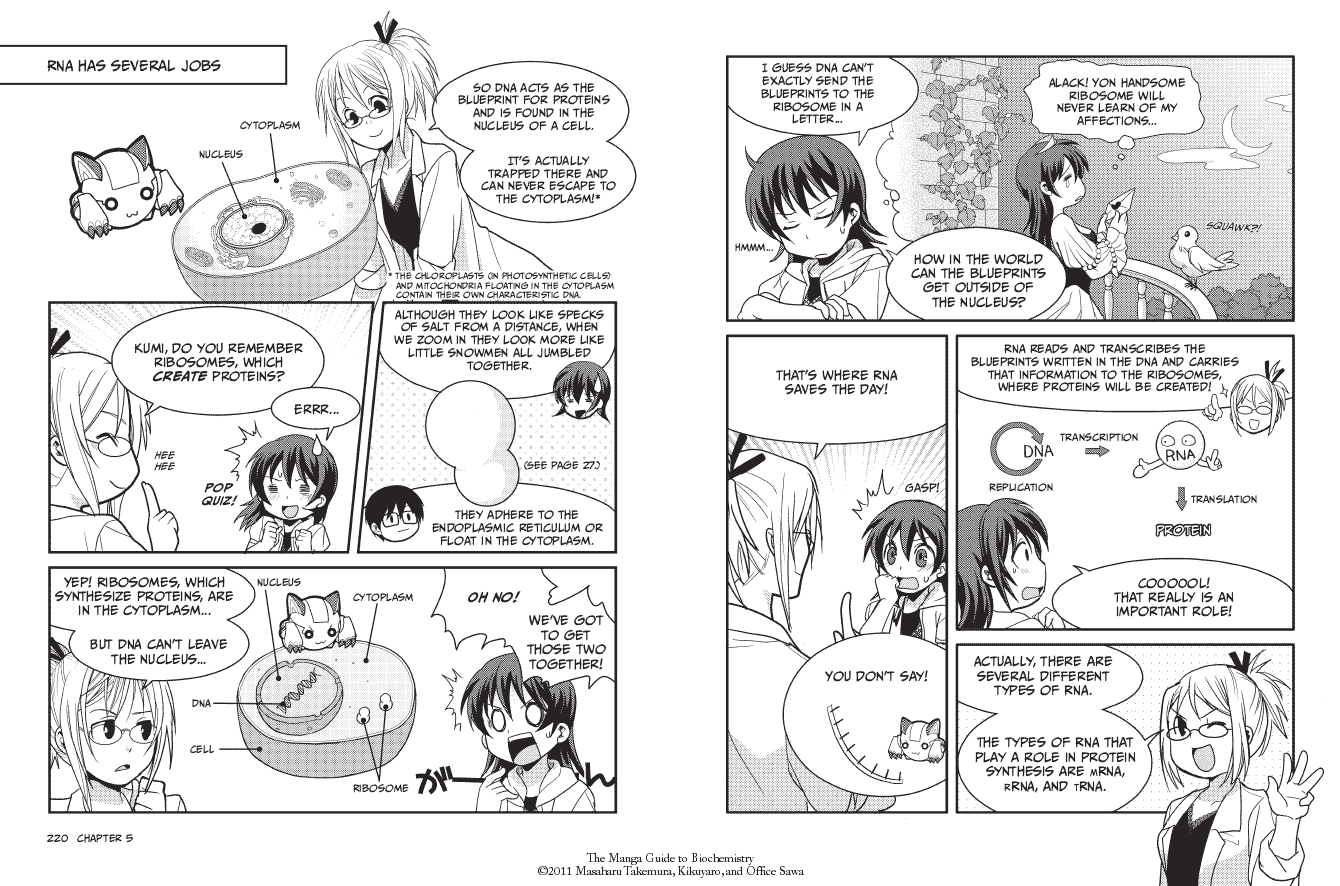|
||
|
The Manga Guide to Biochemistry—New from No Starch Press Manga Guide Series Helps Students Master Math and Science |
||
San Francisco, CA, November 15, 2011—America has a problem. According to studies by the Program for International Student Assessment, American students scored lower in math and science than their counterparts in most of the developed world. The Trends in International Mathematics and Science Study had similar findings, ranking American students behind those in South Korea and Russia. Parents, educators, and politicians are searching for new ways to teach these critical subjects, but what’s the solution? San Francisco-based geek book publisher No Starch Press thinks it has part of the answer: educational comics. Since 2008, No Starch Press has been translating and publishing a unique series of Manga Guides (originally from Japan) that offer comic introductions to tough topics like Calculus, Physics, Molecular Biology, and Relativity. It's called educational manga or edumanga, and it works. The Manga Guides have already helped hundreds of thousands of students worldwide learn complicated math and science topics. Critics praise the books as "stimulation for the next generation of scientists" and "a great fit of form and subject." The series uses authentic Japanese comics and an engaging story to make their subjects accessible and to keep the reader's attention as they learn. The latest volume, The Manga Guide to Biochemistry (No Starch Press, Nov. 2011, 272 pp., $24.95, ISBN 978-1-59327-276-0), tackles tricky topics like how the body metabolizes carbohydrates, lipids, and alcohol; how mitochondria produce ATP; and how DNA is transcribed into RNA. The book follows the protagonist, Kumi, as she unlocks the secrets of healthy eating by learning the science of biochemistry. She is helped along the way by her brainy friend Nemoto; his biochemistry professor, Dr. Kurosaka; and a friendly endoscopic robot named Robocat. The easily digestible comic format is a welcome reprieve for college and high school students tired of dry textbooks and is also engaging for younger readers interested in learning real math and science. "The Manga Guides are great supplements to college-level courses, but we've also heard from parents whose nine- and ten-year-olds learned statistics and physics from these books," said No Starch Press Publisher William Pollock. "The story and comics almost hide the fact that readers are actually gaining solid technical knowledge. What an exciting way to open the eyes of so many to the wonders of math and science." For more information or to interview No Starch Press Publisher William Pollock, contact Rachel Waner at No Starch Press ([email protected], +1.415.863.9900 x109), or visit www.nostarch.com. Sample spread from The Manga Guide to Biochemistry: |
If you would like to stop receiving any and all press releases from O'Reilly, please email [email protected].



